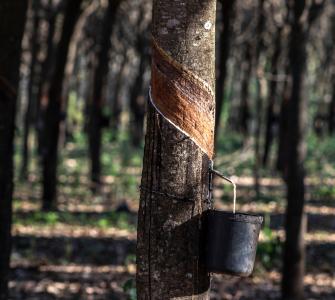Developing Fair Payments for Ecosystem Services in the Amazon Rubber Supply Chain
The Amazonian native rubber supply chain holds important ecological and social value, yet its role in delivering ecosystem services is often underrecognized and undercompensated. To address this challenge, Conservation Strategy Fund and WWF-Brazil partnered to apply a carbon valuation approach to compare with existing payments, without directly proposing a new model.
Rubber extraction in the Amazon not only supports livelihoods but also contributes to forest conservation. The project focused on assessing how the carbon sequestration benefits associated with standing forests compare to the payments currently made under the “Rubber Arrangement,” highlighting the disparity between what is paid today and the potential value that could be generated through carbon markets. The project did not quantify new flows, nor did it create carbon credits. It simply compared estimated values.
Over the course of the initiative, the team analyzed the environmental contribution of the native rubber chain, estimated the climate-related benefits based on avoided deforestation, and estimated the volume of carbon emissions avoided as a result of forest conservation associated with rubber-tapping areas. A transparent comparison was then developed to illustrate the disconnect between existing payments and the economic potential of forest carbon.
The analysis concluded that, while the “Rubber Arrangement” represented meaningful progress in valuing sustainable extractivism, it remained insufficient to ensure that rubber-tapping families would continue in the activity over the long term. The compensation provided fell far short of the potential returns available through other mechanisms, such as carbon markets. To help close this gap, the project recommended complementing the current model with additional incentive structures, such as direct payments to families, investment in local infrastructure, and greater support for the socio biodiversity value chain. It also highlighted the importance of a participatory and transparent monitoring model to strengthen conservation outcomes and provide long-term benefits for forest-based populations.
This project was made possible with the generous support of WWF-Brazil.
___
Photo Credit: Natural Rubber, Brazil, Shutterstock

